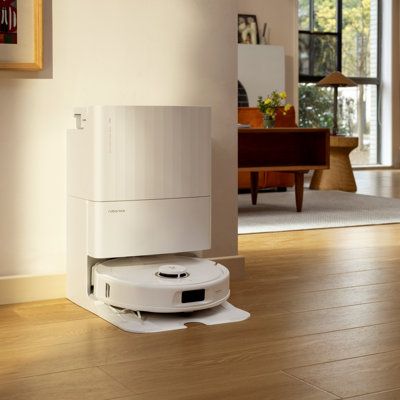There are a million “excuses” to put off investing for retirement. You aren’t sure if you know enough to get started. Retirement feels a hundred years away. You’re expecting a raise. You don’t want to “lose it all.”
But, the truth is waiting to invest can cost you big time. Even if you’re decades away from retirement, financial experts recommend that you start saving, and investing those savings, as early as you can. That’s because, the earlier you start investing, the more time your money has to work for you and grow.
Compound interest allows any interest earned to then accrue interest on itself so, over time, a small amount of money invested earlier will earn more than a large amount of money invested later. This is why the right time to take your money out of the bank and invest is almost always “now,” so that the power of compounding can begin to work its “magic.”
To put this idea into context, CNBC recently published a piece about how much you would have by retirement if you put away $500 a month (that’s $15-17 a day) starting at various stages of your life.
Here’s the breakdown of much you’d have by age 67 if you put away $500 a month starting at various ages.
If you start saving at age 25
With a 4 percent rate of return: $628,918
With a 6 percent rate of return: $1,055,703
With an 8 percent rate of return: $1,825,461
If you start saving at age 30
With a 4 percent rate of return: $490,213
With a 6 percent rate of return: $763,609
With an 8 percent rate of return: $1,218,422
If you start saving at age 40
With a 4 percent rate of return: $282,505
With a 6 percent rate of return: $382,235
With an 8 percent rate of return: $524,105
If you start saving at age 50
With a 4 percent rate of return: $142,185
With a 6 percent rate of return: $169,277
With an 8 percent rate of return: $202,501
Try out CNN’s helpful calculator here.
When I saw these numbers, I just about fell out of my chair (and finally increased my allocation in my personal retirement account). As these numbers show, depending on how old you are now, putting away an average of $15 could make you a millionaire.
But, unfortunately, 65% of Americans save little or nothing—and half could end up struggling in retirement. That’s according to a new survey from Bankrate.com, which found that 20 percent of Americans don’t save any of their annual income at all and even those who do save aren’t putting away a lot.
How to start saving for retirement
I get it. It’s boring. And worse, it’s confusing But, sometimes the hardest thing about saving money is just getting started. For starters, anyone looking to lower their expenses can consider making it a priority to eliminate debt, downsizing their home. or consider a side hustle.
Getting into the habit of saving any amount will be helpful for you in the long run. If you need help with how to get started, here are a few tips:
If you haven’t already started investing, the simplest way to start is to invest in your employer’s 401(k) plan, a tax-advantaged retirement savings account.
Next, consider alternate retirement savings accounts, such as a Roth IRA and traditional IRA and SEP IRAs for freelancers and the self-employed. Check out these explainers on choosing between a 401(k) and an IRA.
Other goals
While retirement is probably going to be your biggest money goal from a dollars-and-cents perspective, some of your other goals may be able to benefit from investing, too.
Those goals might include buying a house, starting a business, having kids, splurging on something (Italian countryside, anyone?), or just plain building up your wealth (I happen to love this one). If you have goal with a timeline of tomorrow or several years from now, you can get started on them now.
So there you have it: retirement and #goals. Put that ish on autopilot and then get out there and make big moves.


Here are more money topics for you…
Answered: 401(k) vs. IRA? Use Both If You Can







